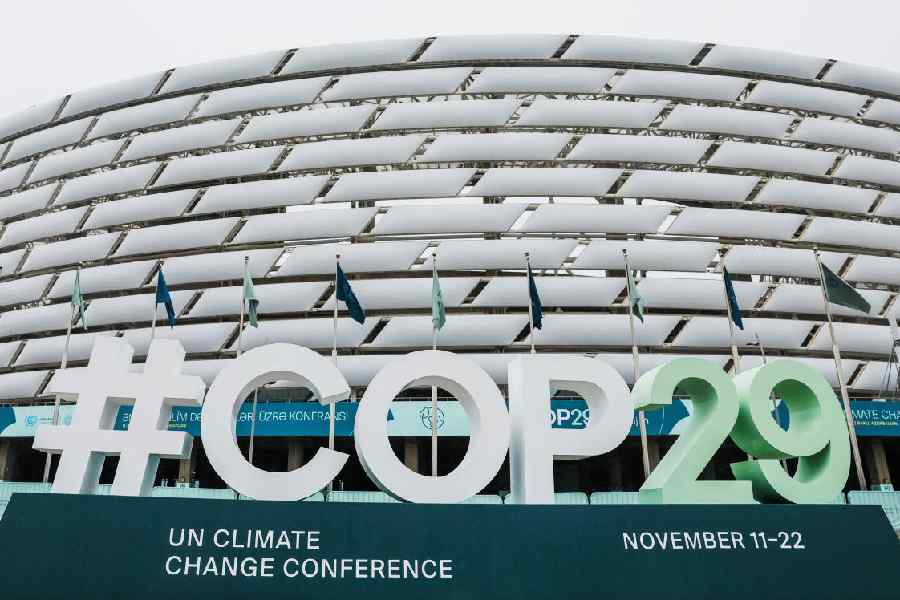One week down, one to go. Halfway into the ongoing 29th Conference of Parties — dubbed the ‘Earth’s last chance’ — at Baku, Azerbaijan, it seems that the more things change owing to the climate, the more they remain the same in terms of benign policy interventions. Consider some of the developments. On the first day, the conference presidency endorsed two key standards for the United Nations-led carbon markets, bypassing debate by countries. The announcement on Article 6.4 of the Paris Agreement was presented as a major step toward launching the carbon market as it could not be agreed upon at CoP 28. While further stalling of the setting up of a carbon market was averted, nothing about its operation or implementation has been discussed. This is where countries are likely to disagree. The European Union, for instance, argues for standardised reporting formats to ensure transparency but developing countries are concerned about the administrative burdens this would impose. India has already voiced its disapproval of the “protectionist” measures that link trade barriers and carbon emissions.
Another key step was the release of the first draft of the New Collective Quantified Goal, an estimate of the money that developing countries will collectively require from developed countries to adapt to climate change and shift to renewable sources without compromising on developmental needs. Yet, the abundance of caveats in this draft — it has more than 100 options across various elements and close to 500 bracketed conditionalities — is indicative of countries refusing to meet one another halfway. The G77 and China bloc — the largest bloc with 134 developing countries as members — has already rejected the ‘substantive framework for a draft negotiating text’ on the NCQG, claiming that its views were inadequately represented. Moreover, with Donald Trump being the president-elect of the United States of America, it is uncertain whether the US will continue to contribute financially towards helping developing nations — something that Mr Trump has repeatedly vowed not to do.
Mr Trump is not the only world leader who could imperil climate negotiations. Argentina, led by the climate change-denialist president, Javier Milei, pulled its delegation out of the CoP 29. There are whispers that he met Mr Trump to discuss leaving the Paris pact. The French minister supposed to lead her country’s negotiations at CoP 29 pulled out at the last minute owing to a geopolitical disagreement with the host, Azerbaijan. The president of the host country also told the conference that oil and gas are a “gift of God”, making his commitments to cutting down on fossil fuels appear dubious. India, which announced its intention to be the voice of the Global South on climate issues at CoP 28, has not participated in the first week’s high-level dialogues. In fact, it has a rather sedate presence this year: the prime minister and the environment minister are staying away from the summit. Most important, though, is the fact that there has been no discussion yet on increasing emission cuts — arguably the most significant step to battle climate change — even though 2024 was the hottest year on record with the target of not letting the world warm beyond 1.5° Celsius above pre-industrial age temperatures having been breached consistently.
Unless the second week sees dramatic developments on any of these fronts, ‘Earth’s last chance’ would have effectively been squandered away.











